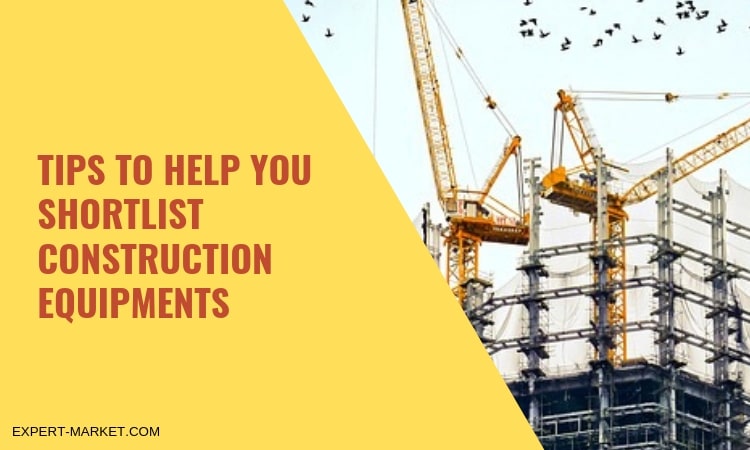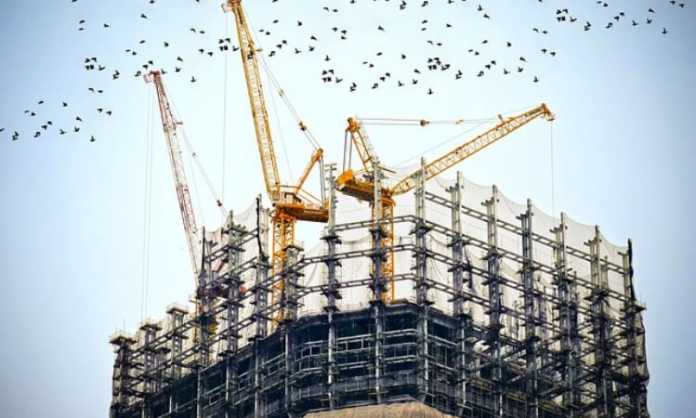Buying right for your business is always a top priority and even more so if you are talking about big-ticket items, which can often be the case when you are looking to acquire tools and equipment to help your construction business to grow.
One cost-effective strategy could be buying used commercial equipment so that you get good value for money, and the fundamental question that you always need to have the answer to is whether you have chosen the right equipment to get the job done. Moreover, you can visit this site for all kind of construction equipment as well as construction related services be it Vacuum Excavator Hire services or Drilling services, everything related to construction is available at this one platform.
Here are some pointers on how to achieve that aim and invest in the right tools of the trade, including some cost considerations to evaluate, a way to pinpoint what you need, and a tip to help you shortlist certain items over others.

Matching your equipment to the type of job you are doing
If you are pitching for a construction job for your business and don’t have the right type of equipment to do the job efficiently it could end up becoming a costly exercise, which is why it makes sense to try and match up the type of job with your existing skills and tools.
If you want to try a develop a niche reputation for your construction business it allows you to focus on quoting competitive prices because you already have what you need in the yard.
You can always buy or rent certain items that you don’t need to use very often and factor that cost into your quote, but if you are looking to buy or lease an item, it makes sense to be dictated by the type of job when it comes to selecting what type of construction equipment you need.
Qualified to operate
Another important consideration is whether your skills match the construction equipment you are going to be using or whether you might need to hire an operator to assist.
It is highly relevant when you are hiring construction equipment, in particular, to be sure that you have the right skills and accreditation to be able to operate the machinery safely.
Hiring skilled operators add to the cost of rental and if you are going to be looking at buying your own equipment it would also be a good investment to get the right level of training so that you can do it yourself.
A good tip would be to always try and keep to equipment that you know how to handle.
You can always hire someone for more unfamiliar items and by sticking to what you know you should also be reducing the risk of an accident occurring because of operator error.
Efficiency is a key motivation
Time is money, and if you are on the clock to make sure the work you are doing is profitable the best way of ensuring that you achieve that aim is to choose equipment that allows you to operate at maximum efficiency.
When you are weighing up whether you should buy a piece of construction equipment a key consideration is whether it will improve efficiency and help you to get the job done as quickly as possible.
If that is the case, the price tag could be justified if the equipment helps you to turn a profit and keep customers happy by completing on time and within budget.
Up to standard
Safety standards are high on construction sites, for good reason, and that means that if you are going to be allowed on to some shared sites with your equipment it will be necessary to ensure that it complies with the relevant requirements.
Keep up to date with safety legislation and focus on buying tools and machinery that pass the relevant standards.
Parts availability
Although you will want to think that your construction equipment will operate trouble-free for many years the reality is that things do break and machinery does need to be repaired from time to time.
What you don’t want to do is buy an item where it is difficult to get hold of spare parts or find anyone who knows how to do the repairs.
Your construction equipment could almost be viewed as the lifeblood of your business and it is clearly integral to doing the work you have been contracted to do, so you will want to be sure that what you are buying fits the bill in terms of parts availability and a network of repair professionals you can call when it’s needed.
Do your research before bidding for an item and check that spare parts and specialists are in ready supply. This will help to ensure that any downtime is minimal and your work won’t be held up for too long if something goes wrong and repairs are required.
Size matters
It goes without saying that construction equipment comes in all shapes and sizes and that can make it difficult when you are trying to decide what equipment and machinery you need.
A fair number of construction projects will often need some heavy-duty items such as bucket trucks and if you find yourself hiring certain items on a regular basis it could prove to be a money-saving strategy to try and acquire one for yourself.
The initial financial outlay might be something you have to plan for when buying a heavy-duty item but if it saves you money in the long run compared to all the hire charges it could deliver a noticeable benefit to your bottom line.
Take a look at the sort of projects you are regularly involved in with your construction business and draw up a list of tools and equipment that you need to be able to do those jobs.
The size and scope of your regular work will help dictate what equipment needs to be on your business shopping list.
When you can answer the vital question as to whether you have all the right tools to get your construction job done with maximum efficiency and with costs under control, that will probably be the point where you can say that you have chosen right.



























